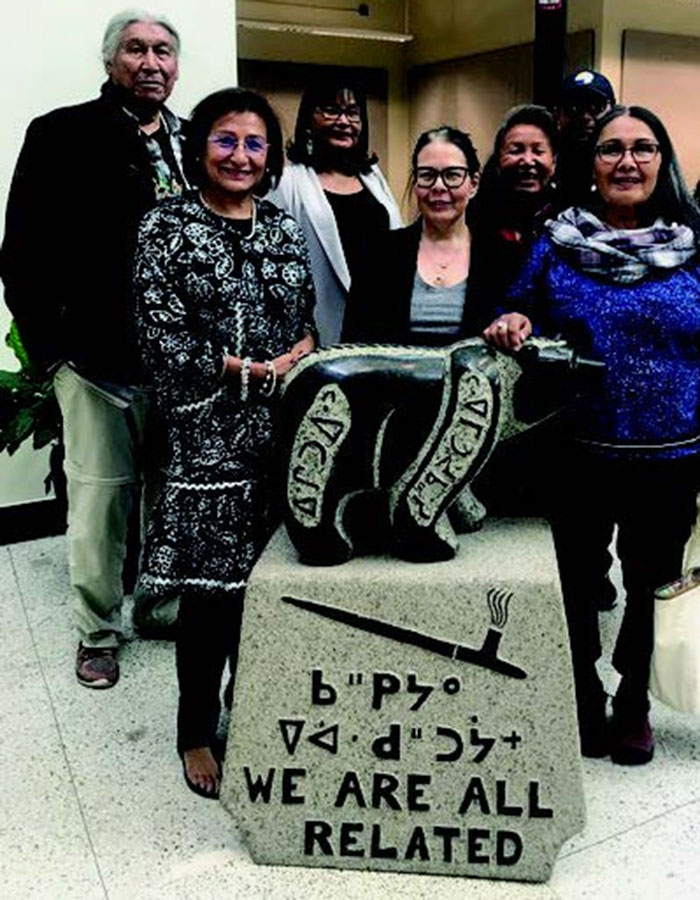Northwest Territories Network Environment for Indigenous Health Research
Mutual learning is helping this NEIHR foster further collaboration among researchers, Elders, and community members in the Northwest Territories
Ms. Kimberly Fairman
Executive Director of the Institute for Circumpolar Health Research

Representatives affiliated with the NWT NEIHR (from L to R): Francois Paulette, Elder Advisor, Institute for Circumpolar Health Research; Sharon Firth, Community Wellness and Youth Advocate; Denise McDonald, Education and Health Advisor; Be’sha Blondin, Elder Advisor, Institute for Circumpolar Health Research; Rassi Nashalik, Elder Advisor, Institute for Circumpolar Health Research; and John B. Zoe, Senior Advisor to the Tłįchǫ Ndek’àowo (Tłįchǫ government).
Kimberly Fairman has launched the Community Engagement, Mentorship, and Training in Northern Health Research: Northwest Territories Network Environment for Indigenous Health Research (NEIHR) with the help of Elders, community researchers, and academic partners who have shared goals. By increasing the number of Indigenous health researchers within the Northwest Territories (NWT), enhancing Indigenous health professional education and healthcare, this NEIHR will ultimately combine western science and traditional knowledges in ways that will benefit Indigenous residents. While the COVID-19 pandemic has slowed down its progress, this NEIHR’s mentorship through mutual learning between Elders and university students has still grown strong. For instance, students have taught Elders how to use iPads for virtual meetings while Elders have helped university students complete their schoolwork regarding Indigenous communities virtually due to travel problems. This NEIHR’s mutual learning also helps students feel at ease doing their research because Elders present themselves as ‘whole people’ who are willing to share stories about their family life rather than imposing themselves as authority figures. Virtual meetings have allowed a national coordinating committee for this NEIHR to get together every six weeks and talk about its overall progress to meet its goals with representatives from community organizations (such as one in Quebec) that may not be part of academia or universities. All of these efforts are great steps forward that best reflect the interests of the Indigenous communities in the NWT.
“A lot of our NEIHR’s evaluation is based on mentorship opportunities for youth, and discussions with Indigenous Peoples so that we can find common values or principles,” said Ms. Fairman. “This way, we can respect traditions of Indigenous patients, and partner with them to realize changes they would like to see in their respective healthcare treatments. Our NEIHR is also creating human interaction that supports student psychological needs. That way, we will be able to launch a scholarship program that holds important components that benefit their overall learning.”
- Date modified: